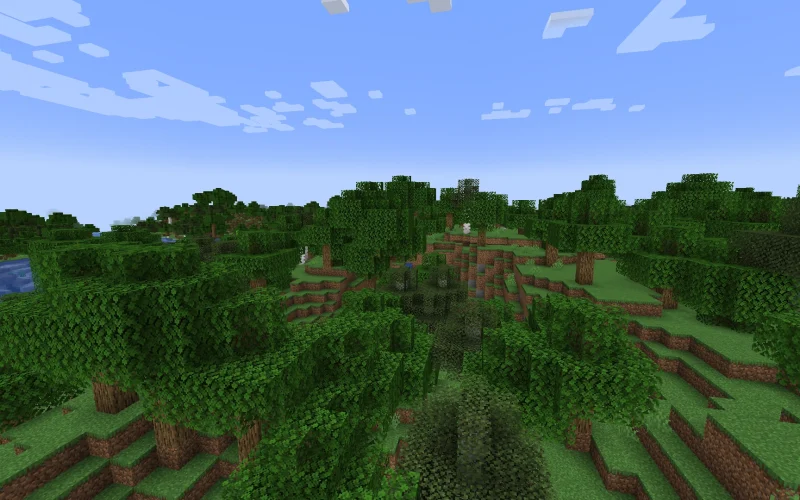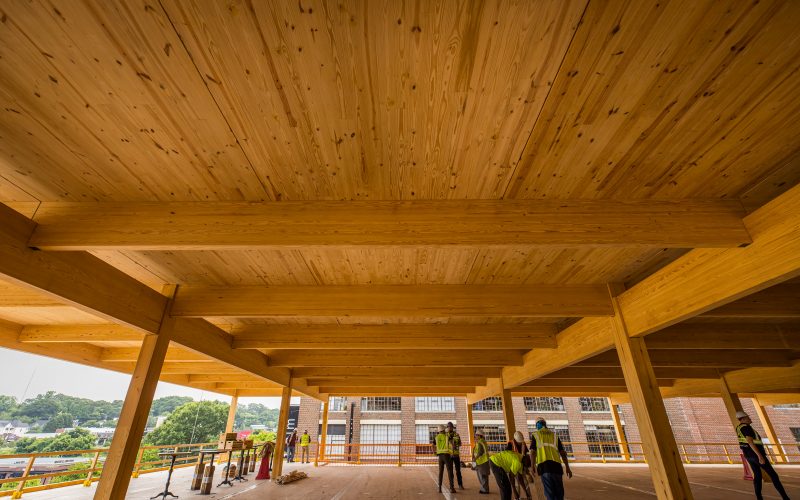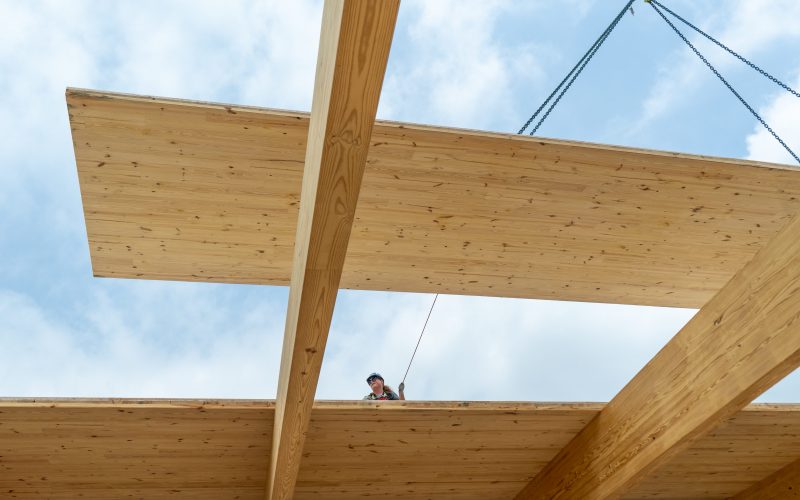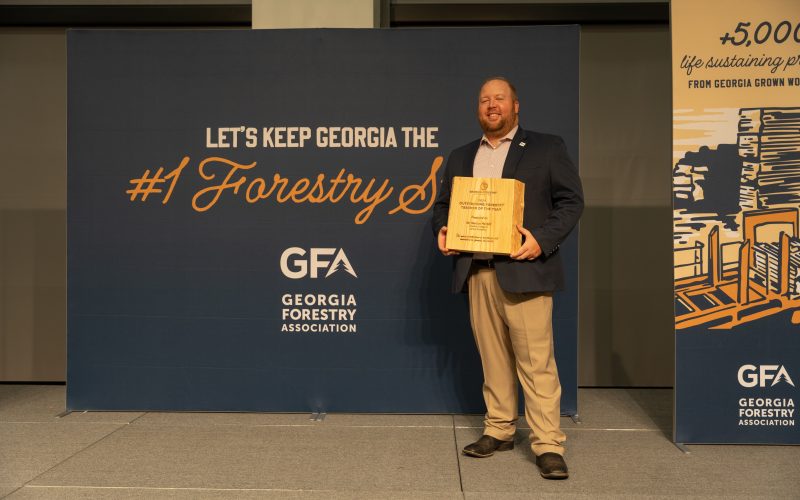Thanks to our state’s plentiful natural resources, strong infrastructure and business friendly climate, Georgia’s economy has continued to grow, and it is well recognized as the #1 Forestry State in the Nation and the #1 State for Business.
However, with continued growth, the challenge of attracting and retaining new talent has been exacerbated. That is why the Georgia Forestry Foundation is focusing on building upon a strong foundation of programs and partnerships to develop a sustained, strategic workforce development pipeline.
Identifying the Scope of our Workforce Challenge
Most recently, the Georgia Forestry Foundation partnered with the Carl Vinson Institute of Government at the University of Georgia to facilitate a statewide, comprehensive workforce development study of Georgia’s forestry sector. The research concluded in February 2023. Click here to review the study’s executive summary.
The results from the study are stark, and it underscores the importance for GFF to enact creative, strategic, and aggressive plans for the industry’s current and future health. Here are a few key insights:
Our workforce is aging. In all parts of the forestry sector, a higher percentage of employees are over the age of 55 compared to all other industries in Georgia. Without a concerted effort to build a workforce pipeline that includes young employees, the forestry industry in Georgia is in danger.
An aggressive approach to workforce development is needed. In order to keep up with the current trends in job turnover and retirements while meeting the projected demand for forest products, the forestry sector will need to attract a staggering number of new employees each year by 2025.
Below is the projected annual demand for employment across major industry sectors:
Harvest & Haul
318 New Truck Drivers Annually (or, 37% of projected employment demand by 2025)
523 New Equipment Operators Annually (or, 45% of projected employment demand by 2025)
Land Management
39 New Foresters (bachelor’s degree) Annually
37 New Forestry Technicians (non-bachelor’s degree) Annually
*Figures are above the annual supply of new employees coming from forestry education institutions across the state.
Manufacturing
2,514 Manufacturing Professionals (production, logistics, maintenance, management) Annually (or, 12% of the projected employment demand by 2025)
Building Upon a Strong Foundation of Work
GFF understands that ensuring the productivity and competitiveness of the entire forestry supply chain is core to the long-term sustainability of our forest resources. Thanks to the investment from our donors, for the last four years, we have been working to strategically reform forestry education and expand the cultural understanding of working forests among all Georgians. This multifaceted approach engages industry experts and diverse organizations to support the continued growth and success of Georgia’s forestry industry.
These key programs have established a strong foundation for our workforce strategy:
EDUCATION: Increasing access to forestry-related education for school age students has laid the foundation for developing a knowledgeable and skilled workforce.
Our innovative educational programming, Georgia Forests I and II is digital and virtual reality curriculum developed with Georgia Public Broadcasting that connects people with forests and their natural resources, targeting urban, suburban, and rural audiences across Georgia and beyond. This program establishes a critical bridge between Georgia’s urban and rural communities and provides immersive and interactive opportunities to learn and understand the importance of working forests in our daily lives. Explore this initiative at gpb.org/forestry.
COLLABORATION AND PARTNERSHIPS: develop partnerships across industry stakeholders, educational institutions, and government agencies. These partnerships provide practical skills, expose participants to various aspects of the industry, and bridge the gap between academia and the professional world.
Our partners have allowed us to reach audiences we would not have been able to reach otherwise. For instance:
- Georgia Audubon has a membership of avid birdwatchers in Atlanta. Georgia FFA and Trees Atlanta give us direct access to conversations with high schoolers who are already interested in green collar jobs.
- Chattahoochee Nature Center goes into the classroom and educates elementary-age kids who do not often engage with nature, let alone forests.
- And, the Georgia Vocational Agriculture Teachers Association connects us directly with all of Georgia’s agricultural teachers twice a year. Read more about our partnerships
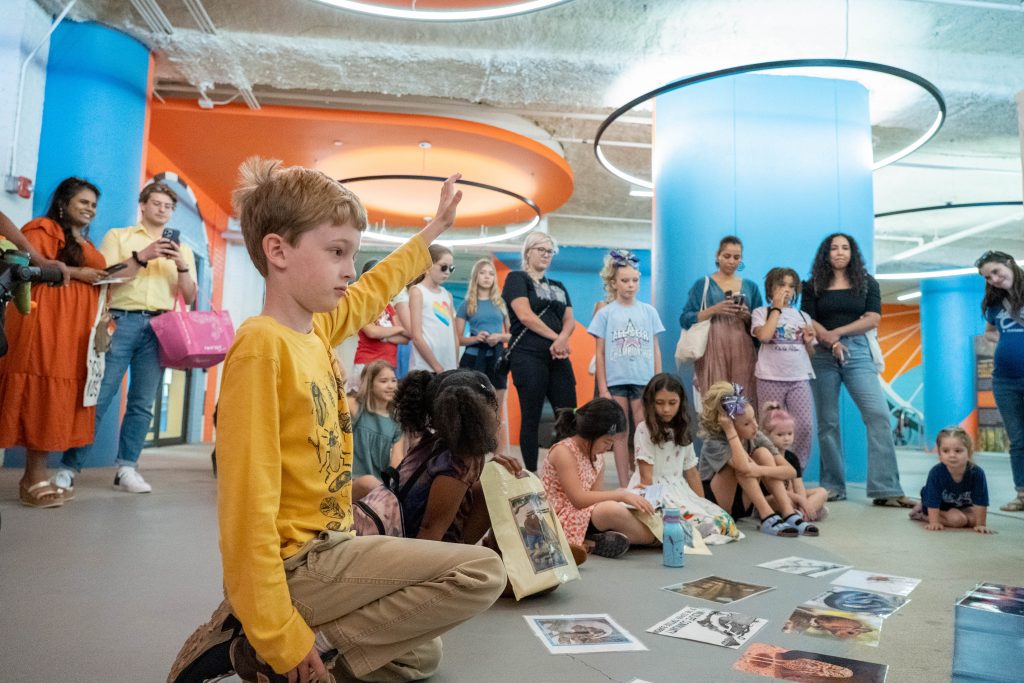
OUTREACH AND PROMOTION: Raising awareness about the forestry industry’s opportunities and benefits can help attract more individuals to consider careers in forestry. The Foundation has a robust awareness strategy, consistently promoting that forestry supports jobs for more than 143,000 Georgians, and that forestry is the state’s second largest employer based on wages and salaries. The Foundation also promotes:
- Highlighting success stories: We showcase established forestry professionals who can share their expertise, experiences, and insights (see forestry careers)
- Developing events and partnerships that increase our reach: For the last two years, GFF has hosted a popular Earth Day event at Ponce City Market. We have met with 1,000+ people each year, spreading the GFF logo and informing one-on-one about the importance of forestry to people’s daily lives and to Georgia (Watch our Earth Day Party Recap)
- Promoting new technologies: Remote sensing technologies, Geographic Information Systems (GIS), and data analytics are revolutionizing forest management practices. By embracing and showcasing the advancements in forestry-related technologies we are attracting tech-savvy individuals who are passionate about conservation and technology alike.
- Identifying new talent: Participating in outreach programs, career fairs, and promotional campaigns highlighting the diverse range of job opportunities within the industry. Many may not be aware of the range of roles beyond traditional forestry jobs, such as forest management, conservation, policy development, research and computer science.
- Promoting strategies to attract and retain talent: It is essential to emphasize the potential for career growth and progression. From GED to PhD, there is a role for everyone to play in the forestry community.
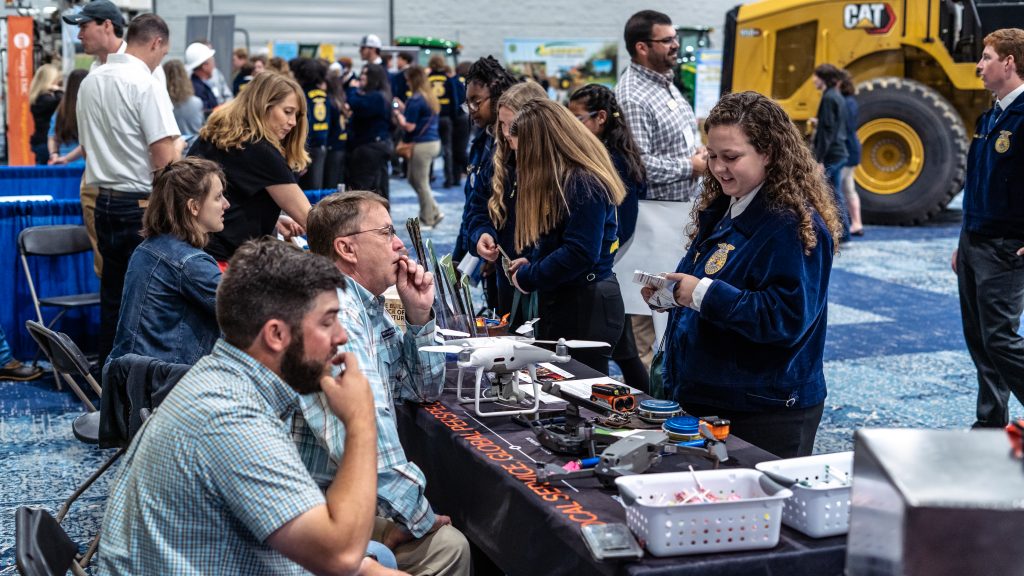
LEADERSHIP DEVELOPMENT
The Foundation actively supports organizations that inform and develop Georgia’s current and future environmental leaders. Through three strong leadership programs in Georgia, GFF is building a foundation of leadership knowledge that will form a long-term, stable future for the forestry industry.
The Institute for Georgia Environmental Leadership (IGEL), Advancing Georgia’s Leaders in Agriculture and Forestry (AGL), and Leadership Georgia are each leadership development programs which gather diverse networks of knowledgeable, skilled leaders from several sectors in the environmental industry.
GFF bolsters the forestry experience through each of these programs through scholarships for forestry industry leaders and forestry educational programming support.
Our Blueprint for Future Success
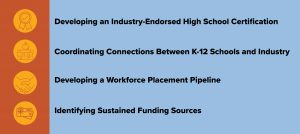
The forestry industry’s workforce development challenges signify a need for an acceleration of GFF’s efforts in this area that builds on this strong foundation.
Developing an industry-endorsed high school certification: GFF seeks to create an industry-recognized high school certification program that would allow students to earn a forestry technician certificate while still in high school. The certification program will be designed to teach students the skills necessary to be job-ready for a variety of forestry careers. GFF will work through FFA and GVATA to encourage students interested in pursuing a career in forestry to complete the certification program.
Coordinating connections between K-12 schools and industry: GFF seeks to expand on our existing in-school programing by expanding engagement with schools across the state. This can come in many different forms, including increased participation at local career fair events, providing materials and resources that teachers can have in their classrooms, and developing a forestry “Link Trip”, where selected high school students can attend a week-long forestry adventure across the state, visiting working forests, logging sites, mills, and corporations while meeting with industry experts along the way.
Developing a workforce placement pipeline: Based on GFF’s recently completed labor study, the two greatest areas of need over the next several years are loggers and log truck drivers. GFF will work to develop a hybrid logger training program consisting of both online and in-person learning experiences. Following successful completion of the program, students can then directly enter the logging workforce.
Identifying sustained funding sources: GFF is seeking sustained funding sources to support the growth and expansion of our education and workforce efforts going forward, including hiring a full-time education coordinator. The funding sources can include government grants, corporate donations, Foundation support, or a combination of all three.
GFF leadership is continuing to identify opportunities and funding sources to develop a sustained, long-term forestry workforce pipeline that starts with K-12 education. Future collaborations will play a vital role in offering relevant education, training courses, and certifications as well as facilitate a coordinated effort to address talent challenges. From mentorships and training programs to classroom learning and hands-on field experience, these opportunities play a pivotal role in nurturing young professionals and providing them with the necessary skills and guidance to thrive in the forestry industry.
Each day, Georgians rely on the state’s 22 million acres of working forests for our livelihood. The air we breathe, the products we use, and the water we drink all depend on the health of our working forests. The Georgia Forestry Foundation will continue to activate new strategies and initiatives that will recruit and retain a vibrant forestry industry workforce.

